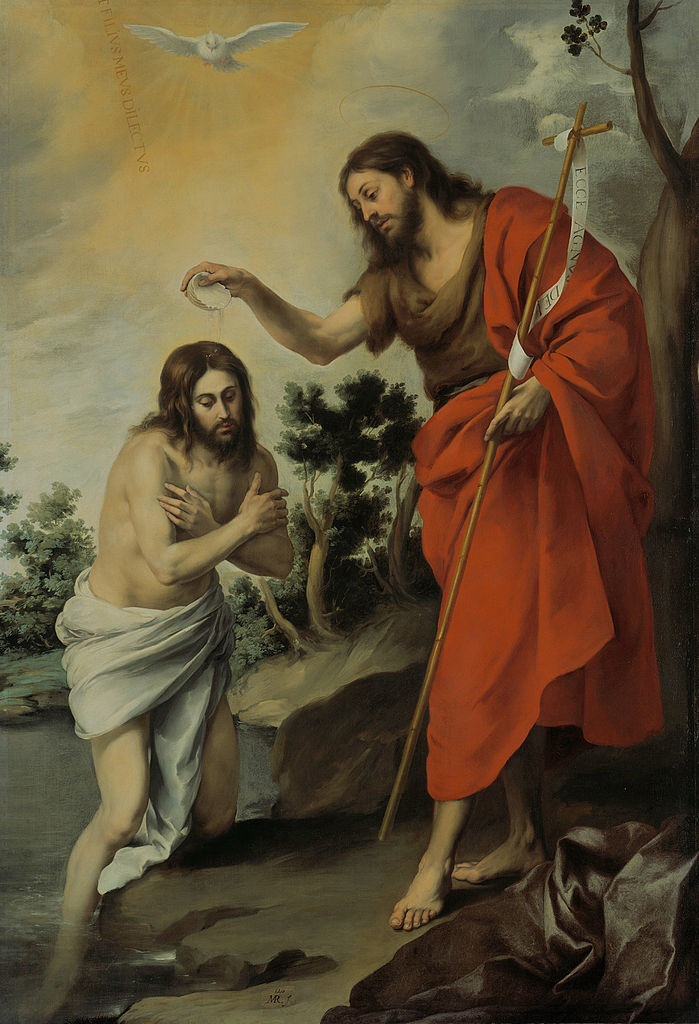Every year, the Christmas season concludes with the feast of the Baptism of the Lord, which we celebrate today. This makes sense when we think about what Christmas means: the Son of God becoming manifest and visible to us. The Second Person of the Holy Trinity, the very Son of God, took on our human flesh so that through the power of His Cross, His disciples could become sons and daughters of God.
The traditional language the Church uses to describe this mystery is that God gives us the astonishing gift of being able to become “sons in the Son” through the grace of adoption. The entry point into that sharing in the life of Jesus’ Sonship, the divine Sonship, is the sacrament of baptism. That mystery not only frees us from the stain of original sin, but is the gateway, the portal, to life in Christ through the power of the Holy Spirit.
The reason the Lord gives us the sacrament of baptism is to elevate us from the merely creaturely and earthly existence that all human beings have to a heavenly existence granted to those who receive the sacrament. (I’ll leave it for another column to speak about what happens to those who aren’t baptized through no fault of their own). Our ultimate goal is to share in the presence of the Holy Trinity (Father, Son and Holy Spirit) in the fullness of the eternal love of God in Our Father’s House.
All that and more is wrapped up in the extremely brief but powerful account of Jesus’ baptism at the Jordan that we hear from St. Mark’s Gospel at Mass today. On coming up out of the water He saw the heavens being torn open and the Spirit, like a dove, descending upon Him. And a voice came from the heavens, “You are my beloved Son; with You I am well pleased.”
That beautiful passage reminds us of how the sacrament “rips open the veil” so to speak, between Heaven and Earth. We can’t see this happening when we pour water on a baby’s head, but that makes it no less real. The great artists throughout Christian history have tried to make that reality visible to us. The 17th-century Spanish artist Murillo depicts that nexus between Heaven and Earth by painting the golden light of the Holy Spirit descending from the Heavens upon Our Lord and John the Baptist at the moment that Jesus makes holy the baptismal waters of every future baptismal font.
What about the words of the Father, thundering from the Heavens, “You are my beloved Son, with You I am well pleased”?
Every child instinctively seeks the approval of his Father. He wants to hear those words from his father on earth, “Good job, Son!” or “Well done.” Our Lord Jesus perfectly fulfilled the will of His Father at every moment of His earthly life, even to the point of shedding His blood on the Cross for us. Our mission on earth is to remain true to our baptism: with the graces that sacrament brings, together with confession and the Eucharist, as we constantly seek to conform ourselves perfectly to that Christ-like obedience, so we too can hear those words at the end of our earthly lives, “With you I am well pleased.” That is what following the commandments is all about.
The Catechism of the Catholic Church puts it this way:
Even now we are called to be a dwelling for the Most Holy Trinity: “If a man loves me”, says the Lord, “he will keep my word, and my Father will love him, and we will come to him, and make our home with him.” [para. 260, quoting John 14:23]
May we be always grateful for the gift of our own baptism and seek to bring many of those who do not yet know Christ to the sacred font so they too can share in Jesus’ divine Sonship.
